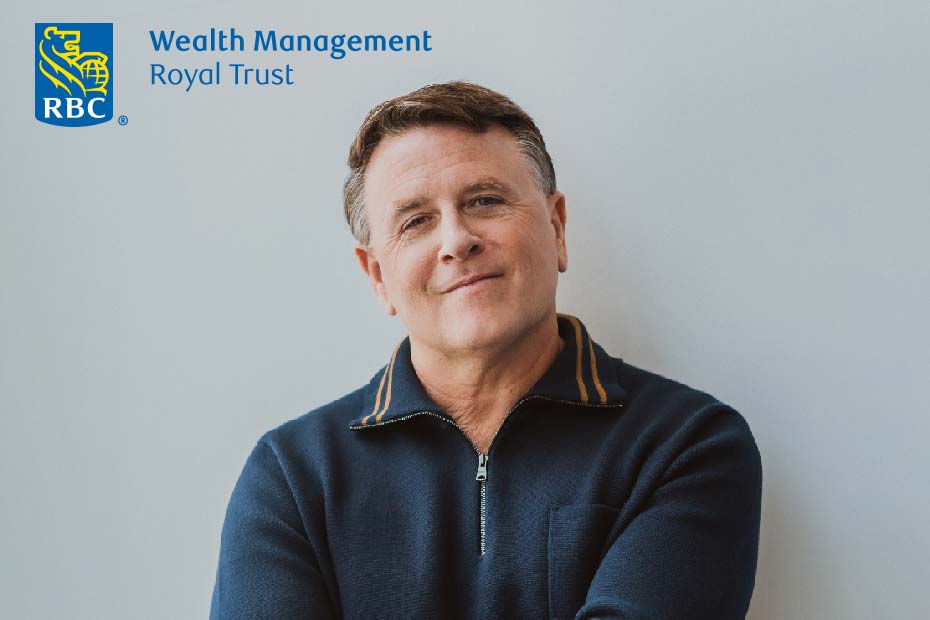Published December 9, 2019 • 1 Min Read
You scored out of
Your travel plans will affect how long your money lasts in retirement.
Answer is YES
An easy one to start with. Yes, your travel plans will affect your retirement budget. Whether you’re thinking about winters down south, a week at the cottage, or a few nights at your favourite theatre festival each summer, you’ll want to consider how much your plans will cost and factor that amount into your spending plan.
You can expect to spend the same amount throughout your retirement.
Answer is NO
Your expenses will vary as you move from one stage of retirement to another. For instance, when you’re newly retired, you’re more likely to be active, which may include travel and /or the pursuit of other goals you’ve been waiting to tackle. In mid-retirement, you may be less active and find your expenses drop, while later years may bring an increase of healthcare costs.
By downsizing to a smaller home your money will last longer.
Answer is NO
While moving to a smaller home (i.e. downsizing) can free up funds for your retirement and cut down on some day-to-day costs, it’s not always going to reduce your overall expenses. Related costs such as closing fees, real estate commissions, condo fees and land transfer taxes can take a bite out of the equity you’ve built up in your home.
Your choice to downsize also depends on how you want to spend your time in retirement. Take a look at our Right-Sizing Case Study: Sophia and Raj for tips that can help you figure out the right move for you.
Your healthcare costs are covered throughout your retirement (because you live in Canada).
Answer is NO
While your regular visits to the doctor and basic hospital stays are covered under your provincial health plan, most plans offer no coverage for vision and dental care. The tab for prescription drugs (provided outside of hospitals), as well as visits to the chiropractor or massage therapist won’t be picked up by the province either. Plus, the cost of long-term care can really add up.
Planning for healthcare costs as part of retirement is a critical step to ensuring you have enough money in your budget. A supplemental health plan can also be helpful in covering your vision, dental and prescription drug costs.
Your retirement income needs to match your pre-retirement income in order to last.
Answer is Depends
Many financial advisors suggest that you’ll need somewhere between 70% and 85% of your pre-retirement income once you retire. Consider the expenses you won’t need to pay for once you stop working. Transportation is a big one — think parking, gas, or public transit cost. You may even be able to forego a second car, and the related insurance premiums, maintenance costs, and monthly lease or finance payments. Throw in buying your daily coffee and regular wardrobe upkeep, and you really may chip away at those day-to-day expenses.
You need to solely rely on your savings to fund your retirement.
Answer is Depends
While your savings can make up a large part of your retirement income, they don’t have to do all the legwork. If you’ve ever worked in Canada, you’ll be eligible to apply for benefits under the Canada Pension Plan (CPP)/ Quebec Pension Plan (QPP), as well as Old Age Security (OAS). Low-income seniors who receive OAS may also qualify for the Guaranteed Income Supplement (GIS).
The amount you receive will depend on a few different factors — it’s a good idea to check the Services Canada site about your benefits, and speak with a financial advisor to determine how these benefits fit into your overall retirement plan.
You should keep investing in your retirement for the money to last.
Answer is Depends
Because your retirement may last 30 years or more, your investment portfolio will need to grow long after you’ve stopped working, even as you withdraw from it. So your investing days are far from over!
Staying invested in a secure and diverse mix of investments can help protect your savings while giving them the chance to grow over the longer-term — and will assist with providing sustained access to the money you need throughout your retirement. A financial advisor can help determine the right investment mix for you.
You could still work for money after you retire.
Answer is Depends
Just because you retire doesn’t mean you’ll never work again. In fact, one in five Canadians over the age of 65 reported working in 2015
You’re never too old to do something you’ve always dreamed of, or to try a completely new career. In addition to keeping active, engaged and mentally fit, re-joining the workforce or launching your own business may provide a financial boost, helping you cover some of your retirement expenses.
1 – Source: Statistics Canada [https://www12.statcan.gc.ca/census-recensement/2016/as-sa/98-200-x/2016027/98-200-x2016027-eng.cfm]
2 – Source: Sheridan Centre for Elder Research, The Status of Senior Entrepreneurship in Canada [2018 [https://ceric.ca/project/study-status-senior-entrepreneurship-canada-training-implications-career-counsellors/]
You scored out of
Your travel plans will affect how long your money lasts in retirement.
Answer is YES
An easy one to start with. Yes, your travel plans will affect your retirement budget. Whether you’re thinking about winters down south, a week at the cottage, or a few nights at your favourite theatre festival each summer, you’ll want to consider how much your plans will cost and factor that amount into your spending plan.
You can expect to spend the same amount throughout your retirement.
Answer is NO
Your expenses will vary as you move from one stage of retirement to another. For instance, when you’re newly retired, you’re more likely to be active, which may include travel and /or the pursuit of other goals you’ve been waiting to tackle. In mid-retirement, you may be less active and find your expenses drop, while later years may bring an increase of healthcare costs.
By downsizing to a smaller home your money will last longer.
Answer is NO
While moving to a smaller home (i.e. downsizing) can free up funds for your retirement and cut down on some day-to-day costs, it’s not always going to reduce your overall expenses. Related costs such as closing fees, real estate commissions, condo fees and land transfer taxes can take a bite out of the equity you’ve built up in your home.
Your choice to downsize also depends on how you want to spend your time in retirement. Take a look at our Right-Sizing Case Study: Sophia and Raj for tips that can help you figure out the right move for you.
Your healthcare costs are covered throughout your retirement (because you live in Canada).
Answer is NO
While your regular visits to the doctor and basic hospital stays are covered under your provincial health plan, most plans offer no coverage for vision and dental care. The tab for prescription drugs (provided outside of hospitals), as well as visits to the chiropractor or massage therapist won’t be picked up by the province either. Plus, the cost of long-term care can really add up.
Planning for healthcare costs as part of retirement is a critical step to ensuring you have enough money in your budget. A supplemental health plan can also be helpful in covering your vision, dental and prescription drug costs.
Your retirement income needs to match your pre-retirement income in order to last.
Answer is Depends
Many financial advisors suggest that you’ll need somewhere between 70% and 85% of your pre-retirement income once you retire. Consider the expenses you won’t need to pay for once you stop working. Transportation is a big one — think parking, gas, or public transit cost. You may even be able to forego a second car, and the related insurance premiums, maintenance costs, and monthly lease or finance payments. Throw in buying your daily coffee and regular wardrobe upkeep, and you really may chip away at those day-to-day expenses.
You need to solely rely on your savings to fund your retirement.
Answer is Depends
While your savings can make up a large part of your retirement income, they don’t have to do all the legwork. If you’ve ever worked in Canada, you’ll be eligible to apply for benefits under the Canada Pension Plan (CPP)/ Quebec Pension Plan (QPP), as well as Old Age Security (OAS). Low-income seniors who receive OAS may also qualify for the Guaranteed Income Supplement (GIS).
The amount you receive will depend on a few different factors — it’s a good idea to check the Services Canada site about your benefits, and speak with a financial advisor to determine how these benefits fit into your overall retirement plan.
You should keep investing in your retirement for the money to last.
Answer is Depends
Because your retirement may last 30 years or more, your investment portfolio will need to grow long after you’ve stopped working, even as you withdraw from it. So your investing days are far from over!
Staying invested in a secure and diverse mix of investments can help protect your savings while giving them the chance to grow over the longer-term — and will assist with providing sustained access to the money you need throughout your retirement. A financial advisor can help determine the right investment mix for you.
You could still work for money after you retire.
Answer is Depends
Just because you retire doesn’t mean you’ll never work again. In fact, one in five Canadians over the age of 65 reported working in 2015
You’re never too old to do something you’ve always dreamed of, or to try a completely new career. In addition to keeping active, engaged and mentally fit, re-joining the workforce or launching your own business may provide a financial boost, helping you cover some of your retirement expenses.
1 – Source: Statistics Canada [https://www12.statcan.gc.ca/census-recensement/2016/as-sa/98-200-x/2016027/98-200-x2016027-eng.cfm]
2 – Source: Sheridan Centre for Elder Research, The Status of Senior Entrepreneurship in Canada [2018 [https://ceric.ca/project/study-status-senior-entrepreneurship-canada-training-implications-career-counsellors/]
For a full understanding of how much money you’ll need in retirement and how much income you can expect to see, it’s a good idea to speak with a financial advisor. They can provide insights, strategies and personalized numbers for you as you plan for a long and fulfilling retirement.
This article is intended as general information only and is not to be relied upon as constituting legal, financial or other professional advice. A professional advisor should be consulted regarding your specific situation. Information presented is believed to be factual and up-to-date but we do not guarantee its accuracy and it should not be regarded as a complete analysis of the subjects discussed. All expressions of opinion reflect the judgment of the authors as of the date of publication and are subject to change. No endorsement of any third parties or their advice, opinions, information, products or services is expressly given or implied by Royal Bank of Canada or any of its affiliates.
Share This Article






